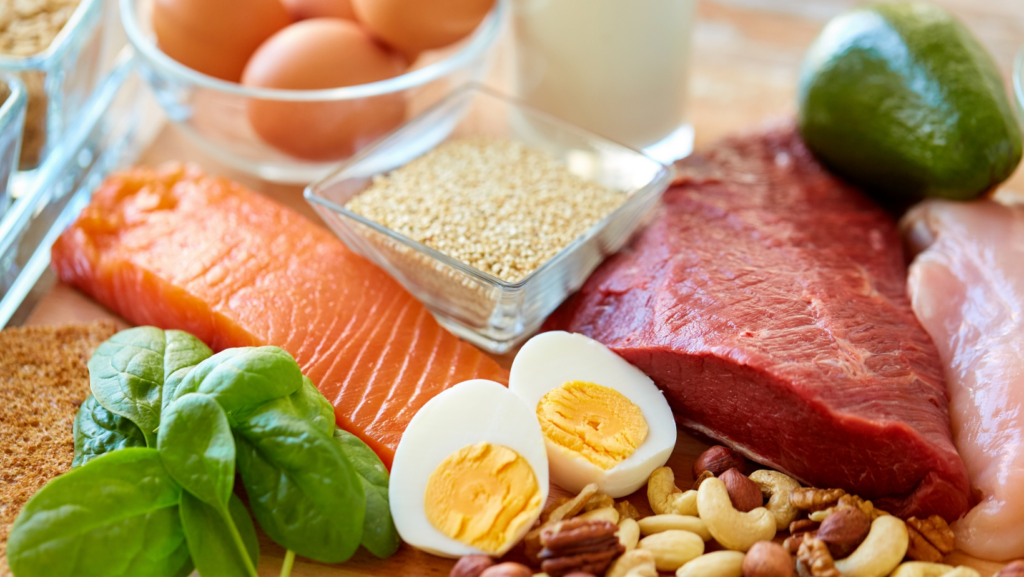When it comes to sports, nutrition isn’t just a sidekick; it’s the superhero that powers athletes to victory. Imagine trying to run a marathon on a diet of gummy bears and soda—spoiler alert: it won’t end well. Proper sports nutrition fuels the body like premium gasoline in a high-performance engine, ensuring athletes can push their limits and crush their goals.
Nutrition Du Sport
Nutrition du sport focuses on the dietary needs of athletes, enhancing performance and recovery. Proper nutrition influences energy levels, muscle repair, and overall health. Carbohydrates serve as the primary energy source, fueling intense training and competitions. Proteins play a vital role in muscle repair and recovery, supporting athletes after strenuous activities. Healthy fats contribute to hormone production and nutrient absorption, essential for maintaining peak performance.
Hydration stands as another critical aspect of sports nutrition. Maintaining fluid balance helps prevent fatigue and optimize endurance. Athletes need to drink water before, during, and after physical exertion. Electrolyte replenishment during prolonged activity aids in maintaining hydration levels and preventing cramps.
Moreover, meal timing significantly impacts energy availability. Consuming meals rich in carbohydrates and proteins before and after workouts enhances performance and recovery. Incorporating nutrient-dense foods ensures athletes consume adequate vitamins and minerals, supporting immune function.
Sports supplements can complement a balanced diet. Protein powders, branched-chain amino acids, and creatine provide additional support for muscle growth and recovery. However, athletes should prioritize whole foods, ensuring a well-rounded diet. Mindful eating habits help athletes maintain optimal body composition and performance metrics.
Ultimately, crafting a personalized nutrition plan aligns with an athlete’s specific needs and goals. Consulting registered dietitians or sports nutritionists provides tailored recommendations, ensuring athletes maximize their potential. Nutrition du sport embodies a strategic approach to achieving excellence in performance and well-being.
Importance of Nutrition Du Sport
Nutrition plays a pivotal role in an athlete’s performance and recovery. Understanding the unique dietary needs helps maximize potential and maintain overall health.
Energy Requirements for Athletes
Energy requirements vary among athletes based on training intensity and duration. For instance, endurance athletes may need 2,500 to 5,000 calories daily, while strength athletes often require 3,000 to 6,000 calories. Calculating individual energy needs hinges on factors like age, gender, body composition, and activity level. Sustainable energy sources contribute significantly to optimal performance, making it essential for athletes to monitor their intake closely. Consuming sufficient calories prevents fatigue and supports recovery, which directly influences training effectiveness.
Macronutrients Breakdown
Macronutrient intake includes carbohydrates, proteins, and fats, each serving a distinct purpose. Carbohydrates, ideally comprising 45-65% of total daily calories, act as the primary fuel source. Proteins primarily support muscle repair and regeneration, typically recommended at 1.2 to 2.0 grams per kilogram of body weight. Healthy fats, accounting for 20-35% of daily intake, play a vital role in hormone production and nutrient absorption. Balancing these macronutrients ensures athletes receive adequate energy and nutrients essential for performance and recovery.
Key Nutritional Strategies
Nutrition significantly influences athletic performance and recovery. Implementing effective nutritional strategies maximizes an athlete’s potential.
Pre-Workout Nutrition
Fueling the body before exercise enhances performance. Consuming a meal rich in carbohydrates 1 to 3 hours prior provides necessary energy. Foods like whole grain pasta, fruits, and oatmeal serve this purpose well. Including a small amount of protein, such as yogurt or lean meats, aids muscle support during the workout. Hydrating adequately before exercise is equally important, as dehydration can impair performance.
Post-Workout Nutrition
Recovery begins immediately after the workout. Eating a combination of carbohydrates and protein within 45 minutes efficiently replenishes energy and supports muscle repair. Examples include a smoothie made with fruit and protein powder or a turkey sandwich on whole grain bread. Rehydrating after exercise also plays a crucial role. Drinking water or electrolyte drinks helps restore fluid balance and combat fatigue. Prioritizing these nutritional strategies ensures athletes recover effectively and are prepared for subsequent training sessions.
Supplements in Nutrition Du Sport
Supplements play a supportive role in nutrition for athletes, enhancing performance and recovery. They should not replace whole foods but can complement a balanced diet.
Types of Supplements
Creatine, beta-alanine, and branched-chain amino acids (BCAAs) are popular among athletes. Creatine improves strength and power during high-intensity workouts. Beta-alanine reduces fatigue, enhancing endurance. BCAAs aid muscle recovery and decrease soreness after training. Other supplements include protein powders, which provide a convenient source of protein, and omega-3 fatty acids, known for reducing inflammation. Each type serves a specific purpose and can benefit an athlete’s training regimen.
Benefits and Risks
The benefits of supplements extend beyond performance enhancement. Improved recovery times and reduced muscle soreness are significant advantages. Better hydration and nutrient absorption contribute to overall athletic health. However, risks exist, including potential side effects and lack of regulation in the supplement industry. Not all supplements are safe or effective for every athlete. Consulting a registered dietitian or sports nutritionist before starting any supplement is crucial. This careful approach ensures that supplementation aligns with individual dietary needs and training goals.
Enhance Overall Well-being
Nutrition plays a pivotal role in athletic performance and recovery. By prioritizing a balanced diet rich in carbohydrates, proteins, and healthy fats, athletes can fuel their bodies effectively. Hydration remains crucial for maintaining energy levels and preventing fatigue during training and competition.
Tailoring nutrition plans to individual needs ensures that each athlete can meet their specific demands. While supplements can offer additional support, they should complement a foundation of whole foods. Consulting a registered dietitian or sports nutritionist can provide valuable insights into optimizing dietary choices for peak performance. Adopting these strategies will empower athletes to reach their full potential and enhance their overall well-being.



